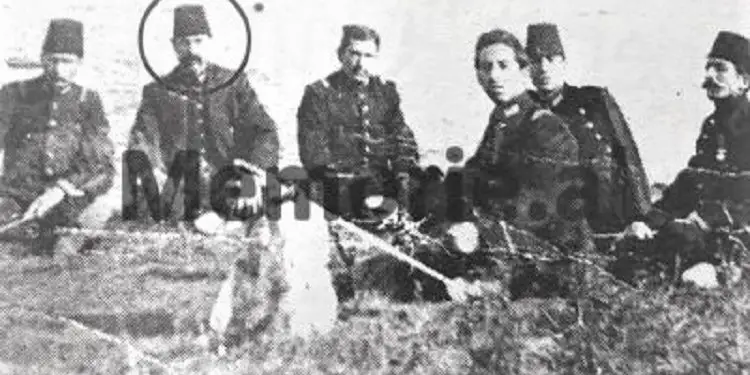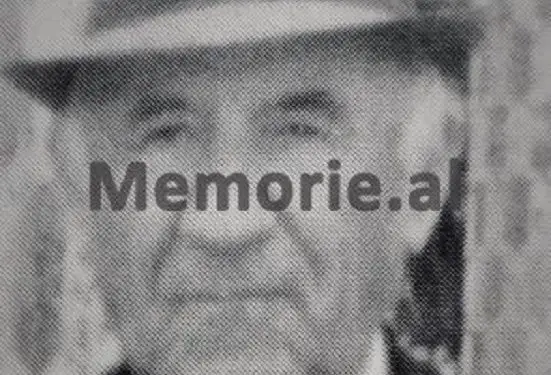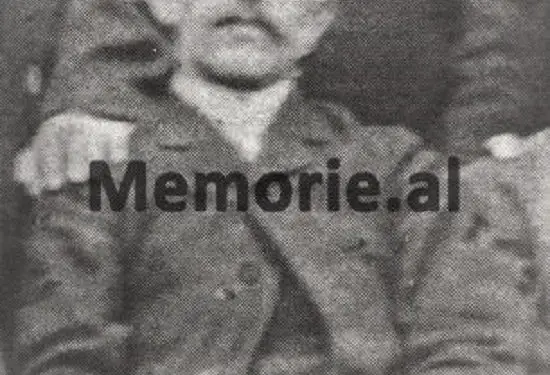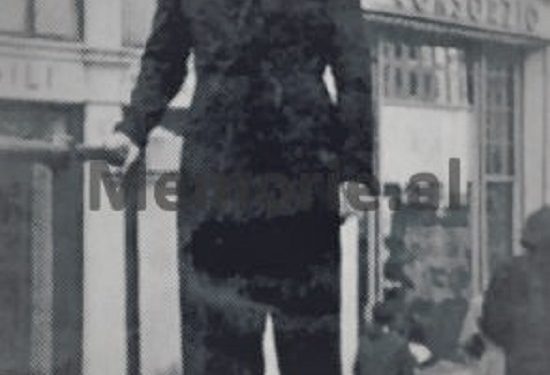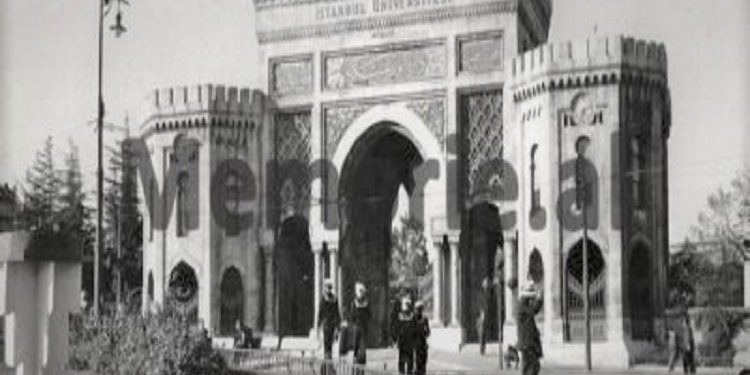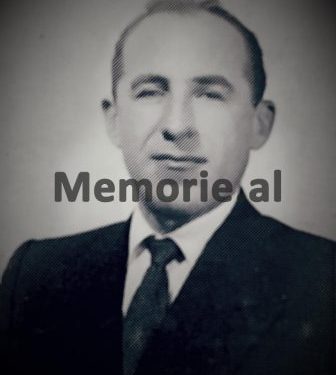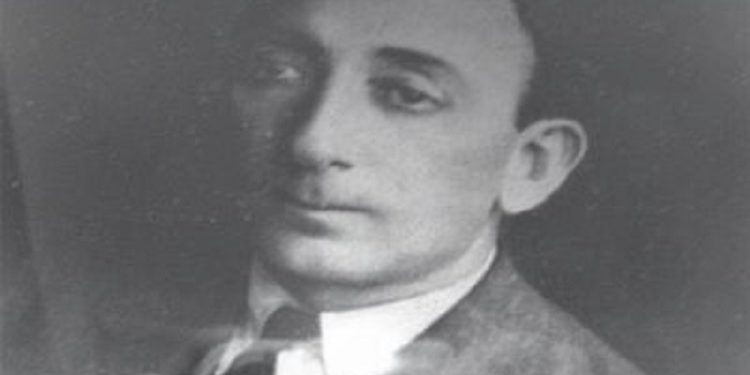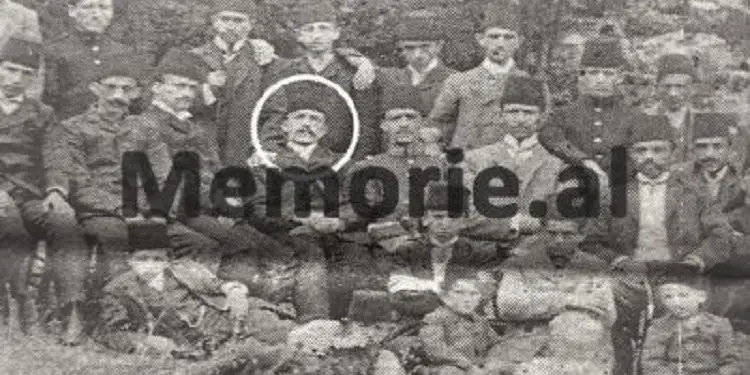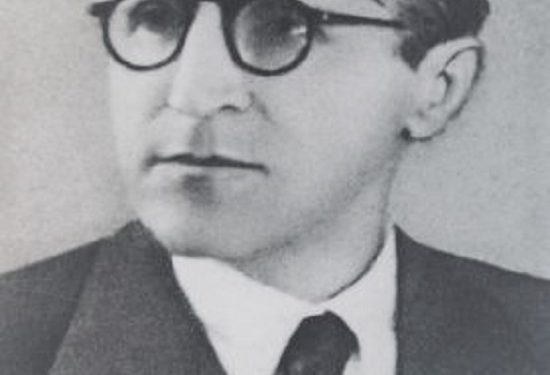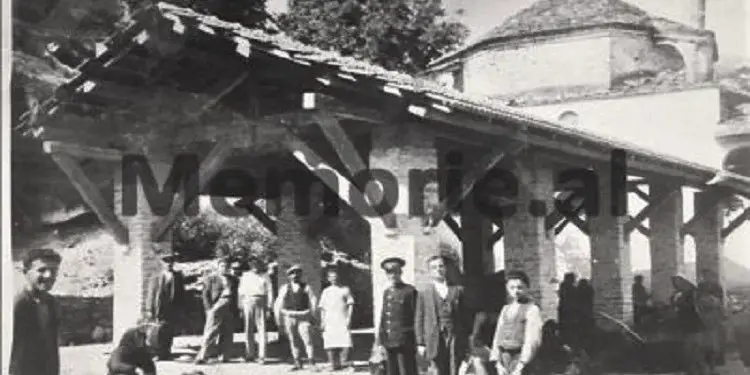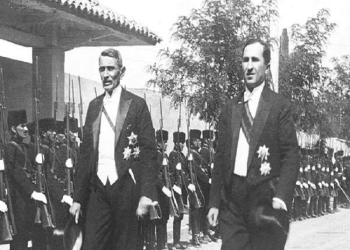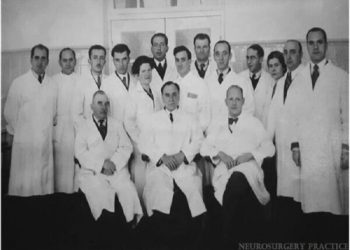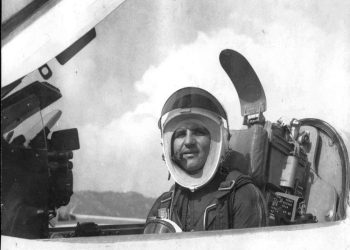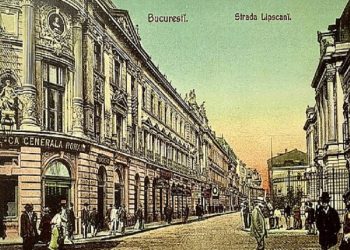Dashnor Kaloçi
Memorie.al publishes the unknown story of the Budo family originating from the stone city of Gjirokastra, where their ancestors for several centuries lived in the Palorto neighborhood and one of the most famous men of them, until five or six generations ago, has been Ahmet Budo, who after marrying Meslihana, a girl from the Dobi tribe not far from their neighborhood, gave birth to four children: Musai, Hazbiu, Mustafai, and Feriku.
While Musai and Hazbi graduated with a degree in Law from Istanbul University, Mustafai graduated from Istanbul University with a degree in Medicine, and after working for a year in the city of Berat, the High Gate appointed him Director of the Hospital of Ioannina, where he did a great job, which led to his appointment in 1890 as Dean of the Faculty of Medicine of Istanbul, where he had trained himself years ago.
During those years that Mustafai served as dean of that faculty, there were also some students from Albania, such as Omer Nishani (later President of the Albanian state) Kamber Malile, (from Gjirokastra) Musa Delvina, (from Delvina) Hajrulla Harxhi, ( from Gjirokastra) Ali Mihali, (from Saranda) Sabri Tefiku, (later Director of the Civil Hospital of Tirana at the time of the Monarchy) Bajram Emiri, Musa Ohri (Ohrid) Haki Babameto (from Gjirokastra) etc.
The entire history of the Budo family dynasty, from their marriages, marriages, estates and estates, studies, official functions and careers of its suckers, to the songs dedicated to them, come through the testimonies of one of the few descendants of to that well-known tribe, Ihasan Budos, a former senior official of the Albanian state until 1956, when he was convicted at the Tirana Conference and suffered a full 32 years in prison and exile.
Mustafai, the famous doctor who died in Gjirokastra in 1926, was also the director of the Ioannina hospital and chairman of the Control Commission at the Turkish Ministry of Health.
Gjirokastra, the stone city in the South of Albania, for several centuries has been known not only for its beauties with characteristic constructions that make up a monumental architectural ensemble that is rarely encountered in any other country in the world, but also by prominent people and families. which has produced, where some of them have made a great name at home and abroad. One of these well-known families of the city of Gjirokastra, is also the one with the surname Budo, where her ancestors were educated and graduated from the universities of the capital of the Ottoman Empire in Istanbul. What is the origin of this family, who are its suckers and in what faculties were they educated in Turkey? Who is the most famous sucker of the Budo family, how did that little dynasty shine and how did it collapse, and why did a branch of its trunk move permanently to Istanbul? Regarding these and other stories, events and characters from the Gjirokastra family, we will be known in this article according to the testimonies of Ihsan Budo, a former senior official of the Albanian state (graduated in Economics), until 1956, when after The Tirana Conference was condemned as an “enemy of the people” and suffered 32 years in prison and exile.
The Budo family from the Palorto neighborhood
The origin of the Budo family is from the Palorto neighborhood of the city of Gjirokastra, where even today is their large house built with the characteristic style of carved stones and covered with flat slabs, probably more than a century and a half. If we look at the dynasty of this family from the fifth to the sixth generation of their ancestors, it is best known to Ahmet Budos, who must have been born there around 1830, also in the Palorto neighborhood of the stone town. According to some testimonies, Ahmeti’s family was very wealthy and his father, Mustafa Budo, enjoyed great respect throughout the city, as he was a very humane and highly cultured man. The wealth of this family came from the properties she had inherited from her ancestors, such as the estates in the villages of Lluvina and Memoraq of Delvina, and another in the village of Dyrmish, which were administered by the family itself in full harmony with the inhabitants of them. villages. Due to the good economic situation and the name and fame that the Budo family enjoyed, her son Ahmeti, around 1855, married a very beautiful and smart girl named Meslihan from the Dobi tribe, who was also very known in the stone city. This marriage between these two tribes made a great echo and her lovers raised songs that were sung at various weddings not only of these two tribes but also in the whole city.
Budo, graduate in Istanbul
Ahmet Budo’s marriage to a girl named Meslihan of the Dobi tribe gave birth to four children. All four were boys and were named: Musa, Hazbi, Mustafa and Ferik. Although there is no data and it is not known what education Ahmet Budo had, given the satisfactory economic situation of the family, he took care to educate his children in the universities of the capital of the Ottoman Empire, in Istanbul. Thus, Ahmeti’s eldest son, Musai, continued his studies in Jurisprudence in Istanbul and graduated with honors. When Musai was in his third year of study at that university, in the same branch and faculty, his other brother, Hazbi, the second of the children, began his studies. After graduating from law school, Ahmeti’s two sons, Musai and Hazbi, returned home, where Musa was appointed by the High Gate to the post of Gjirokastra Prefect. Ahmeti’s third child, Mustafa, who was born in 1860 in the city of Gjirokastra, unlike the other two brothers who graduated in law, continued his studies and graduated from the University of Medicine in Istanbul. While the three brothers graduated in Istanbul, their fourth brother, Ferik, did not complete his higher education, but stayed at home, managing the family’s property and estates in the villages of Lluvinë, Memorial, and Dyrmish.
Incident with the Turkish Governor
The period that Musa Budo served as the Prefect of Gjirokastra dates back to the 1890s when the country continued to be under the administration of the Turkish Empire. At that time, in the city of Giroksatra, in addition to the Prefect, there was also a Turkish Governor (Mytesarif), who ruled the whole area as all-powerful. He was very rude and behaved in the most barbaric way with the local population. Based on this, several meetings were held in some neighborhoods of the city at that time, where a representative was elected, who would go to enter into talks with the Turkish Mytesarif, informing him of all the problems that the people were raising for him. Hysen Hoxha (Enver Hoxha’s uncle) was elected from the Palorto neighborhood, as a representative of the delegation that would go to talk to Mytesarif, and Musa Budo was elected chairman of that delegation. When they went to meet the Governor, he received them with the same humility that characterized him, and during the talks, the blood was so hot that Musa and Hysen Hoxha got up to shoot Mytesarif, who escaped well thanks to the intervention of the gendarmes guarding his who always kept them close. After that conflict, the High Gate was notified for 24 hours and through the Governor of Ioannina, which was under the jurisdiction of the Prefecture of Gjirokastra, issued a dismissal order for Mytesarif and appointed another Turk in his place, who met all his requirements. raised the representation of the people of Gjirokastra headed by the Prefect Musa Budo.
Mustafa, Dean of Medicine in Istanbul
Ahmeti’s third son, Mustafai, who was born in 1860 after graduating and graduated from the Faculty of Medicine in Istanbul in 1882, returned to Albania and was appointed a doctor in the city of Berat. Having done a pretty good job in that city, he was nominated by the High Gate as director of the Ioannina hospital. As in Berat and in the high office assigned to him in Ioannina, Mustafa made a great name for himself, thanks to his unstinting and humane work. Seeing the work and popularity that Mustafa enjoyed throughout the Vilayet, in 1890, the Turkish government appointed him to the position of Dean of Medicine at Istanbul University. In addition to that position, from 1890 to 1904, Mustafa Budo also served as chairman of the Control Commission at the Turkish Ministry of Health (Hejeti Teftishije Reisi). During those years, in addition to hundreds of students from around the world, Mustafai was fortunate to give lectures to many Albanian students studying medicine in Istanbul at the time. Thus, from the Albanian students who were students of Mustafa, we can mention: Omer Nishani (later President of the Albanian state) Kamber Malile, (from Gjirokastra) Musa Delvina, (Delvina) Hajrulla Harxhi, (Gjirokastra) Ali Mihali, (Saranda) Sabri Tefiku, (later Director of the Civil Hospital of Tirana during the Monarchy) Bajram Emiri, Musa Ohri (Ohrid) Haki Babameto (Gjirokastra), etc. All these students, students of Mustafa Budo, after graduating from Istanbul returned to their homeland where they distinguished themselves as skilled doctors. Many of them like Dr. Omer Nishani, Dr. Sabri Tefiku, Dr. Hajrulla Harxhi, etc., in their memories mentioned with deep gratitude their pedagogue Mustafa Budo.
The death of Dr. Budos in 1926
After working for nearly 30 years in senior positions in the Istanbul Health Department, in 1925, Mustafa Budo returned to his hometown of Gjirokastra, which he had left at a young age when he began his studies. in Turkey. In his hometown, Mustafai worked for almost a year as a doctor because in 1926 he died suddenly. In this regard, Mustafa’s nephew, Ihsan Budo (former senior Albanian state official, sentenced to prison and internment after the Tirana Conference in ’56), told us, among other things: “Although I was no longer more than six years old, I remember very well the death of Mustafa as if it had happened today. Mustafa enjoyed tremendous popularity in Gjirokastra, and his funeral was attended by almost the entire city, from all walks of life, rich and poor, Orthodox and Muslim. Not only was he a very good doctor, but he also had a good and very humane spirit. The year he worked as a doctor in Gjirokastra, he did not take any money from people when he went to visit them. His funeral was attended by all the high authorities of the city and if I am not mistaken, the memorable speech was given by the Mayor of Gjirokastra, Javer bey Hurshiti, who was also one of Mustafa’s closest friends”.
Emigration of Mustafa Budo’s family
According to the testimony of Ihsan Budo, while he was studying in Istanbul, Dr. Mustafa married a Turkish girl named Farie. From that marriage, they had four daughters and a son. After Mustafa’s death, Faria’s wife, along with her five children, emigrated to Istanbul where she had all her people who helped her raise and educate her children. The boy was named Nebil, and after his father’s death, he completed his higher education in 1930, graduating with a degree in Mechanical Engineering in Germany. Mustafa’s eldest daughter was named Leman and after graduating in Pedagogy, he married Eqerem Beshiri in Durrës. My second daughter, Myzejeni, after graduating in Medicine, worked as a doctor in Istanbul and married a Turkish citizen there. The third daughter, Ixhlali, graduated from a pedagogical school, but never worked as a teacher and stayed at home. Myneveri’s fourth daughter, graduated in Pedagogy, worked as a teacher in Istanbul and after marrying a Turkish citizen, she has only one son and she lived until a few years ago in Istanbul. Mustafa’s only son, Nebili, married a very wealthy Turkish girl and later divorced her. He remarried in Istanbul and inherited a very large fortune, opened a private activity which he administered himself until his death in 1994 at the age of 95. Of Mustafa’s children, only his daughter Lemani remained in Albania and died in Durrës in 1970.
The end of the Budo dynasty
But how did the life of Mustafa Budo’s brothers who remained in Gjirokastra go and what did they do? In this regard, Ihsan Budo told us: “Of Mustafa’s brothers, Refik was the one who lived the longest. He did not go to school like the other three brothers but was involved with the family’s agricultural and livestock economy on their property in Lluvina. Although he was not educated, Refik enjoyed a good name in Gjirokastra and was known as a generous, humane and very patriotic man. During the last period of Turkish rule, in the first decade of the last century, Refik was one of the people who sheltered and financed Çerçiz Topulli’s gang, at his tower in the village of Lluvinë near the border with Greece. For that, Refik has a patriotic pension from the government of King Zog, a pension which he continued to receive under the communist regime of Enver Hoxha. Ferik Budo was also known for an incident with Esat Pasha Toptan around 1895, when the Pasha of Tirana served as Chief of Police of the Vilayet of Ioannina. At that time, Esat had gathered some Albanians who held high positions in the capital of the Vilayet and gambled with them. One of them was a relative of Refik, who complained to him that Esat Toptani had earned their money by trickery. Then Refik directed the barrel of the revolver on Esat’s head and forced him to distribute all the money he had fraudulently earned to his compatriots “, Ihsan Budo remembers the stories of Refik, the brother of Dr. Mustafa Budos, who died at the age of 95 in 1957. From the dynasty of the Budo family, almost no one is left. In addition to Ihsan (an economics graduate who suffered 32 years in prison and internment) who passed away a few years ago, Nexhmi’s son, who had a father, Hazbi, Mustafa’s brother, also lived. Also, besides him, from the Budo dynasty, live Hazbi and Refik Budo, who have taken the names of their grandparents, Mustafa’s brothers, one of the most famous doctors not only in Albania, but also in the capital of Ottoman Empire, Istanbul. Memorie.al




